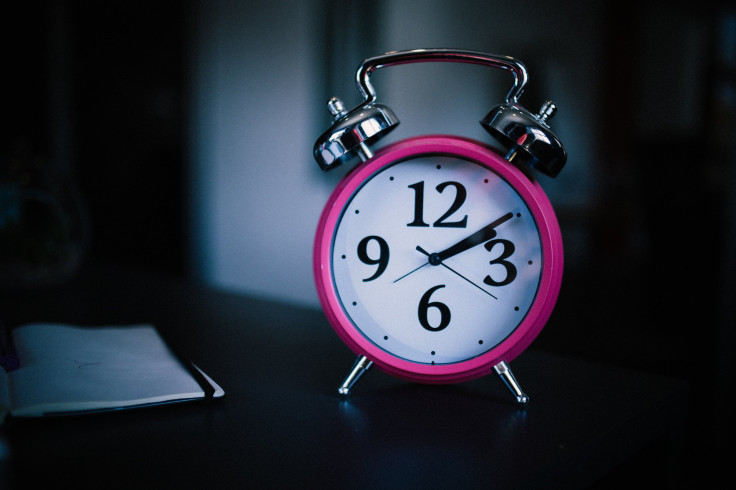How The Human Body Wakes Up In The Morning: Circadian Rhythms, Clock Genes In Brain Regions Influence Perception Of Time

Every day, like clockwork, we wake up in the morning — sometimes without the buzzing sound of our alarm. Our sense of time allows the body to tell us when we're hungry, sleepy, and even when it's time to catch a ball coming towards us, but how exactly do we "sense" time?
In TED-Ed's video, "How does your body know what time it is?" host Marco A. Sotomayor explains we owe this ability to an interconnected system of timekeepers in the brain. This is the equivalent of a stopwatch telling us how many seconds elapsed; a clock counting the hours of the day; and a calendar notifying us of the seasons. Each timekeeper is located in a different brain region, with the most primitive clock, known as the suprachiasmatic nucleus, or SCN, located in the hypothalamus.
Read: How The Human Body Runs Over A 24-Hour Period
Scientists have relied on fruitfly and mouse studies to hypothesize how this system works in humans. They believe proteins known as CLK, or clock, accumulate in the SCN throughout the day. In addition to activating genes that tell us to stay awake, they make another protein called PER. When enough PER accumulates, it deactivates the gene that makes CLK, eventually making us fall asleep. Then, CLK falls low, so PER concentrations also drop again, allowing CLK to rise, starting the cycle over. There are other proteins involved, but our day and night cycle may be driven in part by this seesaw effect between CLK by day and PER by night.
Our SCN also relies on external cues like light, food, noise, and temperature for better precision. These are known as zeitgebers, German for "givers of time." Zeitgebers fine tune our daily behavior; for example, natural morning light filters into our eyes, which helps us wake up.
Natural morning light travels through the optic nerve to the SCN, communicating what's happening in the outside world. The hypothalamus then halts the production of melatonin, a hormone that triggers sleep. At the same time, it increases the production of vasopressin and noradrenaline throughout the brain, which help control our sleep cycles.
At about 10 a.m., the body's rising temperature drives up our energy and alertness, and later in the afternoon, it also improves our muscle activity and coordination. This is why bright screens at night can confuse these signals, which is also why binging on TV before bed makes it harder to sleep.
Read: Magnesium Levels Help Set Circadian Rhythm And Increase Metabolism
Sometimes we need to be even more precise with time telling, which is when the brain's internal stopwatch chimes in. Neurons in the cortex and other brain areas may communicate in scheduled, predictable loops that the cortex uses to judge with precision how much time has passed. This creates our perception of time.
French speleologist extraordinaire Michel Siffre spent a few months in a lonely, dark cave without light or clocks to see if he could keep a regular sleeping-waking cycle. He kept a consistent circadian clock, also known as body clock. However, his own perception of time was warped, despite his brain's best efforts to keep him on track.
This makes us wonder — if time isn't objective, could each one of us be experiencing time differently?
Only time will tell.
See Also:
Eating Schedule Is Equally Important As Sleep Cycle For Maintaining Rhythm
Scientists Perform The World’s First Circadian Rhythm Transplant
Published by Medicaldaily.com



























